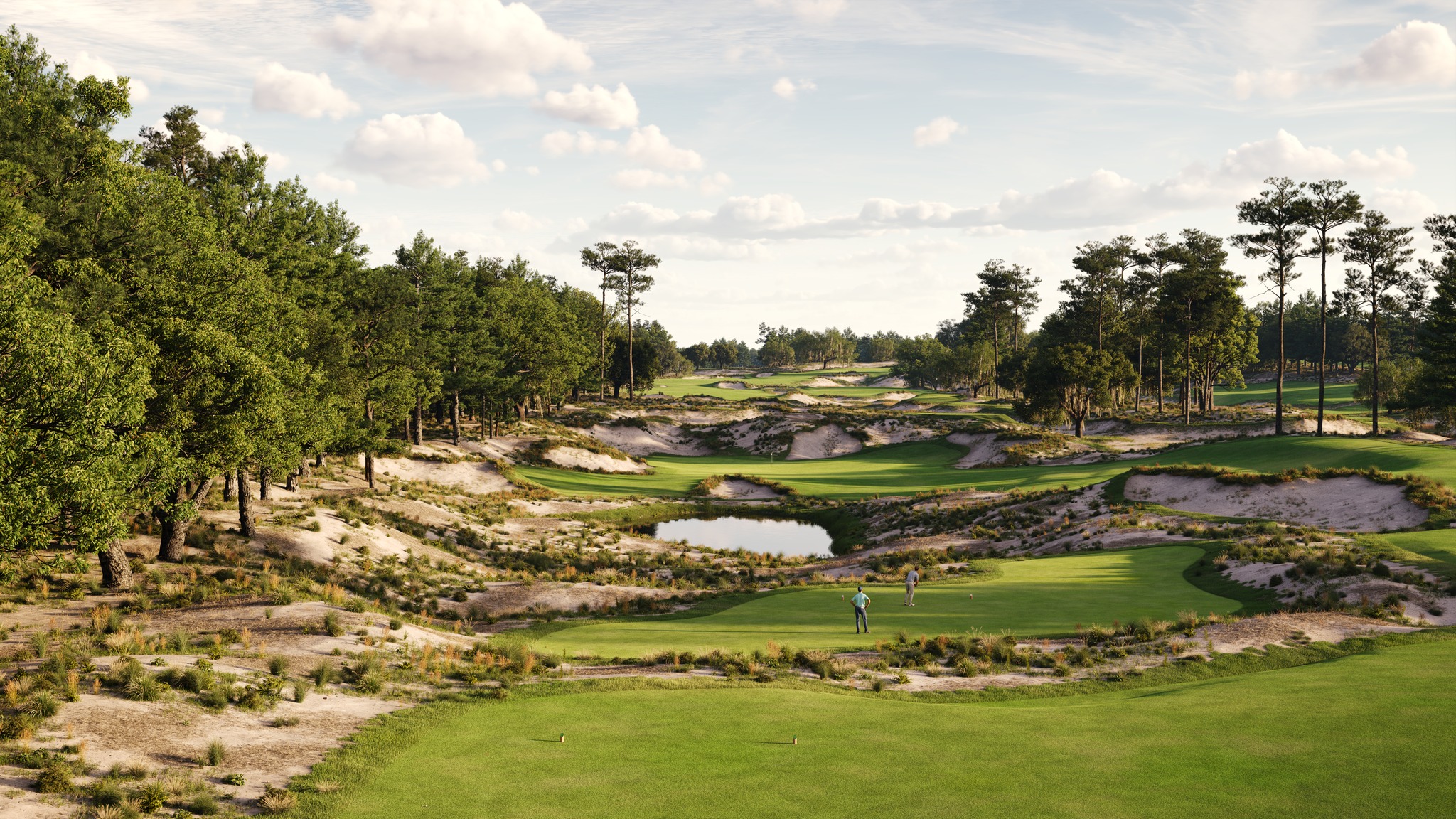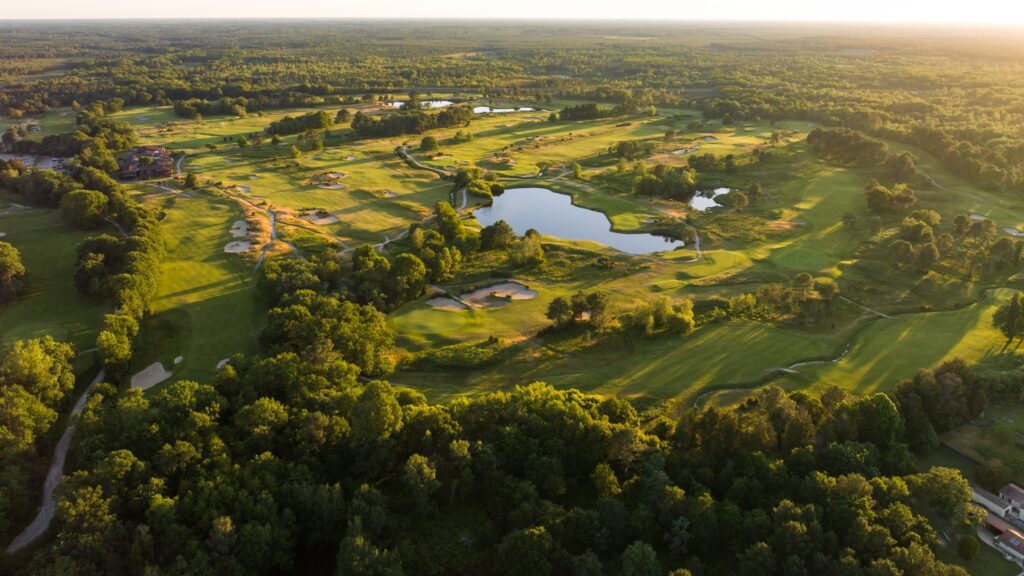
Cabot Citrus Farms
No brand in the world of golf destination travel is growing as rapidly as The Cabot Collection.
The company – which burst onto the global golf scene in 2011 with the opening of its seminal Cabot Links course in Nova Scotia, Canada — has seen its portfolio expand exponentially in recent years.
Cabot debuted its first Caribbean course (and only member course) to much fanfare in December 2023 and this year unveiled a complete overhaul of its first U.S. property: Cabot Citrus Farms in Florida, the former World Woods facility that was once a darling in golf architecture circles.
Cabot is currently building a second course, designed by Tom Doak, to complement the heralded Castle Stuart course at its destination property in the Highlands of Scotland, and has yet another course under construction in Revelstoke, British Columbia, a region known as the heli-skiing capital of the world.
The new kid on the block
And the newest addition to the portfolio is a 36-hole golf resort in French wine country that’s been rebranded as Cabot Bordeaux. The 400-acre property, the former Golf Du Médoc Resort, boasts 1990s-era courses that were designed by Bill Coore and Rod Whitman, the architects who ironically had a hand in creating the first two Cabot courses in Cape Breton.
The very first Cabot property, tucked between the Atlantic Ocean and the quaint town of Inverness, has been recognized as one of the top golf resorts in the world with its 46 holes of golf across three courses, luxurious lodging that includes an inn, golf villas, and homes, and three on-site restaurants.
“What we set out to do is create magical memories in remarkable locations,” said Cabot founder Ben Cowan-Dewar. “At our core, that’s what we’re looking for. You think about how different Cape Breton to Highlands to Saint Lucia to Revelstoke to Citrus Farms are, but at their core they’re really spectacular sites for golf. And we get to work with the best golf architects in the world and hopefully to create these experiences that are soul-stirring. That’s the focus.”

Cabot Bordeaux
All about the experience
Cowan-Dewar knows a little something about great golf experiences.
Twenty-five years ago, the 45-year-old Canadian founded a company that organized and operated private golf trips. He traveled the world as a result, getting a first-hand look at what made certain golf destinations, and experiences, so special.
As Cowan-Dewar shifted his attention to development, his fundamental belief started with finding the very best sites, ideally ones close to Cabot’s market of the U.S., Canada and the U.K.
“If we’ve got that and the best architects in the world, can we do something really amazing?” he says.
Over the years, Cowan-Dewar has looked at countless golf course sites around the world, ruling out great landscapes in remote parts of Asia, South America and Western Australia because they were too far afield. Within five minutes of visiting the northern tip of Saint Lucia, he knew it was a fit for what’s become one of the most scenic new courses in the game today.
Conversations about Castle Stuart and World Woods started not long after the pandemic in 2020 and Cabot closed both acquisitions six months apart in 2022.
“If I could have written that out, I wouldn’t have done that,” said Cowan-Dewar. “But you don’t get to write those stories of your life. In my list of opportunities, of existing properties in the world I wanted to buy, they were 1 and 2. You can’t say no to golden opportunities. It’s not rapid growth at all costs and it’s not me doing everything. It’s increasingly an amazing team of people.”
Cowan-Dewar is quick to credit his growing team for Cabot’s prolific expansion efforts.
At the same time, Cowan-Dewar’s intimate familiarity in the world of high-end destination golf is what’s helping fuel the experiential component. When the brand takes over a new property, there’s an immediate focus on “Cabot touches,” from fresh, warm cookies served at the first tee to signature swallow-tail pin flags, metal cups, and a blend of classic and modern aesthetic, from course design and halfway houses to on-property accommodations.
“I care so much about the golfer’s experience,” said Cowan-Dewar. “I’ve seen so many golf courses, so I constantly think about, ‘How do I interact? How do I feel when I walk out of the pro shop? What’s the transition? How far is this walk? What am I feeling? Are we angled there, but the view would be so much better here?’”
It all works together to position Cabot as the fastest-growing brand in the world of golf getaways.
And there will likely be more on the way.

